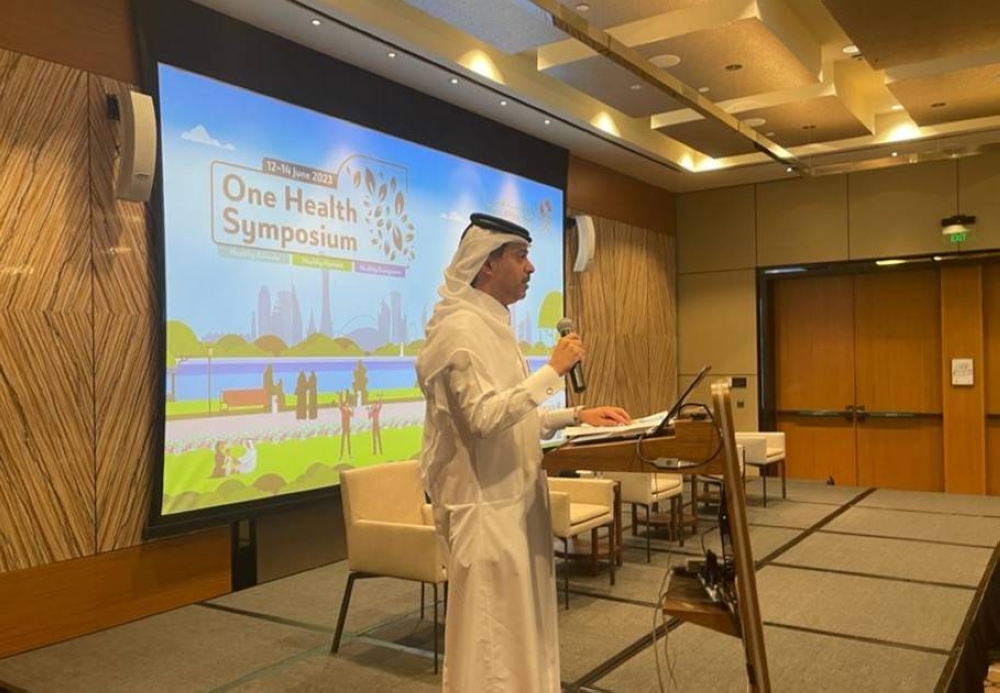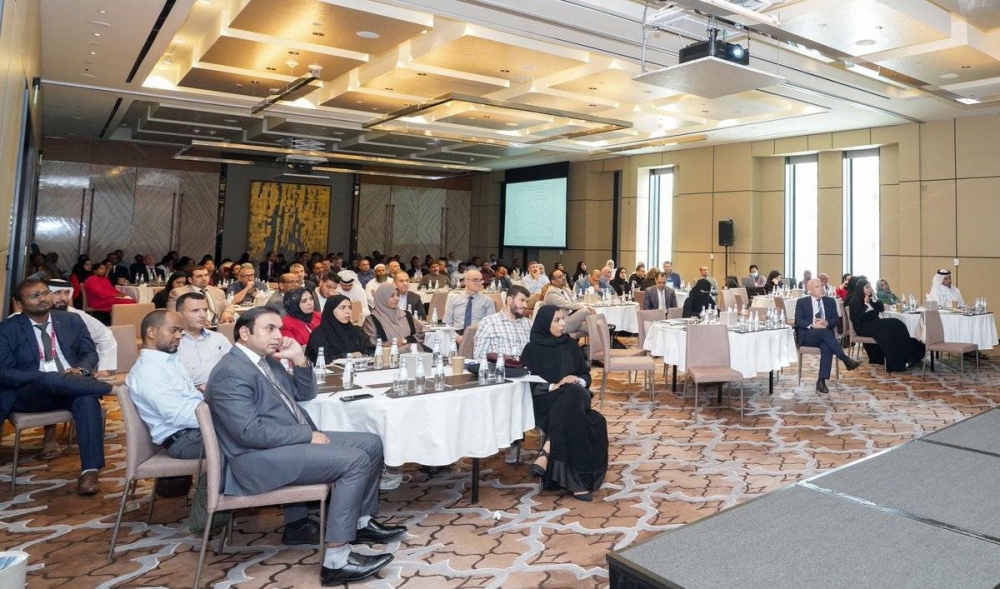The Ministry of Public Health organised a symposium on the One Health Approach in the State of Qatar, with the participation of representatives from a number of ministries and authorities in the country in the public and private sectors, in addition to specialised international organisations.
The symposium aimed to develop a national plan to implement the One Health Framework in Qatar, in a way that contributes to the realisation of health strategies and the Qatar National Vision 2030.
Professional experts and academic researchers from the State of Qatar, the GCC countries and international organisations participated in the symposium to share their experiences and research results on One Health, and to present results of recent research conducted in Qatar and a number of countries on zoonotic and emerging diseases.
Dr. Hamad Al Rumaihi, Director of Health Protection and Communicable Disease Division at the Ministry of Public Health, said that since the Covid pandemic, utilising the One Health approach has become an urgent necessity, leading to the formation of a multidisciplinary technical group to assess and investigate risks, conduct scientific research, and take appropriate measures that meet the needs of each sector. He also acknowledged Qatar Research Development and Innovation in Scientific Research for their support.
According to Dr. Mohamed Jarrar, Director of the Biomedical and Health Sciences Program, Qatar National Research Fund, such events are consistent with the Qatar's approach to coordinate efforts to monitor and assess risks and develop appropriate measures to effectively address them. He expressed his confidence that the working group recommendations will be helpful in defining scientific research priorities in Qatar and that the One Health approach allows for multi-sector joint research.
The WHO's representative in Qatar, Dr. Rayana Bou Haka, stated that the organisation would use its technical resources to support Qatar in their adoption of the One Health approach, which is a unified approach that aims to achieve a sustainable balance and optimum health of humans, animals, plants, and ecosystems.
Representatives from The World Health Organization, the Food and Agriculture Organization of the United Nations (FAO), the United Nations Environment Programme, the World Organization for Animal Health, Global Health Development and the Eastern Mediterranean Public Health Network , the United Nations Development Fund, the Gulf and European Centers for Disease Control, Ministry of Municipality, Ministry of Environment and Climate Change, Hamad Medical Corporation, Primary Health Care Corporation, Qatar University, Anti-Doping Laboratory, Weill Cornell Medicine- Qatar, representatives of medical and veterinary laboratories and a number of private sector companies participated in the symposium.
The Covid-19 pandemic has helped to understand how to handle and manage public health risks. As a result, the symposium provided an opportunity to learn from others' experiences and illustrate insightful lessons to achieve the goal of a better health, better care, and better value for the people of Qatar.


